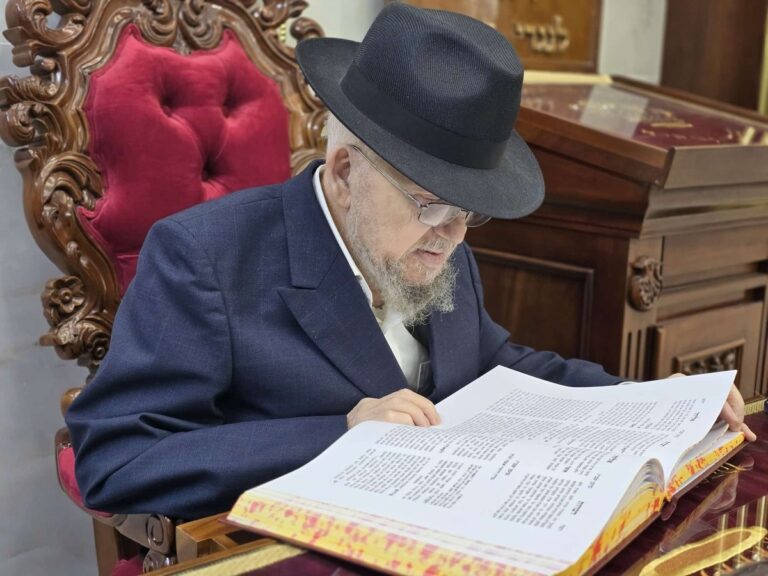Israeli Prime Minister Benjamin Netanyahu fired his defense minister on Sunday, a day after the former army general called for a halt to the planned overhaul of Israel’s judiciary that has fiercely divided the country.
The move signals the prime minister will move ahead this week with plans for the overhaul, which has sparked widespread opposition. Tens of thousands of protesters have taken to the streets, military and business leaders have spoken out against it and leading allies of Israel have voiced concerns.
Outgoing Defense Minister Yoav Gallant, a former army general, is a senior member of Netanyahu’s ruling Likud party. On Saturday, he called for a pause in the controversial legislation until after next month’s Independence Day holidays, citing the rift’s threat to Israel’s national security.
Netanyahu’s office did not provide further details over the firing. Galit Distal Atbaryan, Netanyahu’s public diplomacy minister, said that the prime minister summoned Gallant to his office and told him “that he doesn’t have any faith in him anymore and therefore he is fired.”
Opposition leader Yair Lapid said that Gallant’s dismissal was a “new low for the anti-Zionist government that harms national security and ignores warnings of all defense officials.”
“The prime minister of Israel is a threat to the security of the state of Israel,” Lapid wrote on Twitter.
Gallant was the first to break ranks in Netanyahu’s coalition late Saturday by calling for the legislation to be frozen. Gallant cited the turmoil in the ranks of the military over the plan. But it was unclear whether others would follow him.
Netanyahu’s government is pushing ahead for a parliamentary vote this week on a centerpiece of the overhaul — a law that would give the governing coalition the final say over all judicial appointments. The government also plans to push for parliamentary authority to override Supreme Court decisions with a basic majority and limit judicial review of laws.
Critics say the constellation of laws will remove the checks and balances in Israel’s democratic system and concentrate power in the hands of the governing coalition. Netanyahu and his allies say the plan will restore a balance between the judicial and executive branches and rein in what they see as an interventionist court with liberal sympathies.
Meanwhile, an Israeli good governance group on Sunday asked the country’s Supreme Court to punish Netanyahu for allegedly violating a conflict of interest agreement meant to prevent him from dealing with the country’s judiciary while he is on trial for corruption.
The Movement for Quality Government in Israel, a fierce opponent of the overhaul, asked the court to force Netanyahu to obey the law and sanction him either with a fine or prison time for not doing so. It said he was not above the law.
“A prime minister who doesn’t obey the court and the provisions of the law is privileged and an anarchist,” said Eliad Shraga, the head of the group, echoing language used by Netanyahu and his allies against protesters opposed to the overhaul. “The prime minister will be forced to bow his head before the law and comply with the provisions of the law.”
The prime minister responded saying the appeal should be dismissed and said that the Supreme Court didn’t have grounds to intervene.
Netanyahu is barred by the country’s attorney general from directly dealing with his government’s plan to transform the judiciary, based on a conflict of interest agreement he is bound to, and which the Supreme Court acknowledged in a ruling over Netanyahu’s fitness to serve while on trial for corruption. Instead, Justice Minister Yariv Levin, a close confidant of Netanyahu, is spearheading the overhaul.
But on Thursday, after parliament passed a law making it harder to remove a sitting prime minister, Netanyahu said he was unshackled from the attorney general’s decision and vowed to wade into the crisis and “mend the rift” in the nation. That declaration prompted the attorney general, Gali Baharav-Miara, to warn that Netanyahu was breaking his conflict of interest agreement by entering the fray.
The fast-paced legal and political developments have catapulted Israel into uncharted territory and toward a burgeoning constitutional crisis, said Guy Lurie, a research fellow at the Israel Democracy Institute, a Jerusalem think tank.
“We are at the start of a constitutional crisis in the sense that there is a disagreement over the source of authority and legitimacy of different governing bodies,” he said.
If Netanyahu continues to intervene in the overhaul, Baharav-Miara could launch an investigation into whether he violated the conflict of interest agreement, which could lead to additional charges against him, Lurie said. He added that the uncertainty of the events made him unsure of how they were likely to unfold.
It is also unclear how the court, which is at the center of the divide surrounding the overhaul, will treat the request to sanction Netanyahu. The Movement for Quality Government said the court had given Netanyahu and the attorney general a week to respond.
Netanyahu is on trial for charges of fraud, breach of trust and accepting bribes in three separate affairs involving wealthy associates and powerful media moguls. He denies wrongdoing and dismisses critics who say he will try to seek an escape route from the charges through the legal overhaul.
(AP)












12 Responses
Umpteenth firing
Thank you Bibi for doing the right thing. We have the greatest admiration for you Bibi, like we always had for Menachem Begin זצקללה”ה for standing up for what is right, and not caving into the sore looser masses.
Mazel tov. Carry on with the reforms.
Judicial reforms might be necessary, but he’s not doing it לשם שמים. Let’s not fool ourselves. He’s a power hungry selfish politician, who is putting his own political career ahead of the country’s security interests. I might be a lone voice here, but this is how I see it.
PUTZ
Good
A kid who wants to destroy the “Jewish country” through carrying its flag and delrolection of duties.
But he called his mom’s and she said she loves him.
Gallant kept working against Israel. He is an insincere opportunist. And don’t let the door hit you on your way out. Good riddance!
Gallant had his career as IDF chief wrecked a decade ago by the left, but in the end they still pulled his strings
Good start
Now fire all the lefties in the government
Good move, Gallant over stepped his bounds.
He was defense minister not the Prime minister and had no place coming out publicly against Netanyahu, such ‘team members’ we can do without.
He clearly wasn’t a good defense minister either, because he should have made it clear to everyone in the military that you don’t choose whether or not you’re going to serve your country based on you political opinions, that’s illegal.
There would be no military and consequently no country if that were the case.
Real leaders stand strong and don’t capitulate!
Menachem Begin 1952:
“We have learned that an elected parliamentary majority can be an instrument in the hands of a group of rulers and act as camouflage for their tyranny. Therefore, the nation must, if it chooses freedom, determine its rights also with regard to the House of Representatives, in order that the majority thereof, that serves the regime more than it oversees it, should not negate these rights. It is possible to achieve this only through ‘supremacy of law,’ which is to say fixing the civil freedoms as the ‘fundamental law’ or ‘supreme law’ and permitting the panel of judges to cancel the validity of law if, in opposition to the fundamental law, it contradicts civil freedoms.”
— Menachem Begin, Basic Outlines of Our Life Worldview and Our National Outlook (Menachem Begin Heritage Center: Jerusalem,
Bibi in 2012
“I believe in a democracy, a strong and independent Court is what enables
the existence of all other democratic institutions,”
he said in 2012. “Every time a law comes across my desk that threatens to impair the independence of the courts, we will take it down.”
Nussan, the Israeli judiciary is not appointed by a democratic process but is self-selected, and it dares to strike down laws not because they violate a “fundamental law” (which Israel doesn’t have), but because they violate their own feelings and political opinions. That is INTOLERABLE. Aharon Barak should have been hanged 30 years ago when he first seized power for the courts and the civil service. It’s not too late to string him up now, but more importantly the entire current court must be put on trial for treason and hanged. And so must anyone who supports their dictatorship.